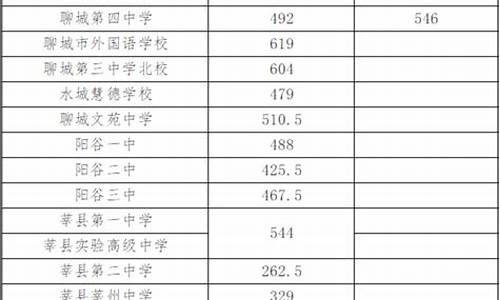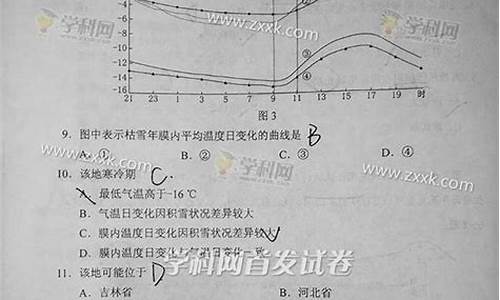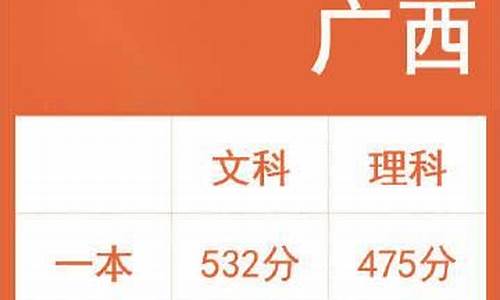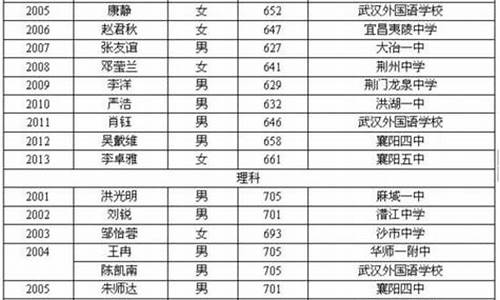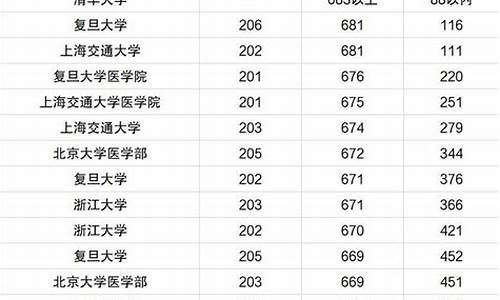高考冠词详解_高考冠词的用法
1.冠词高考题的详解1
2.高考英语翻译时什么时候要加定冠词什么时候不用
3.急!!高考!冠词the的用法。
4.如何用一种最为便捷有效的的方法解决冠词的高考题?谢谢!

不定冠词的基本用法
(1)
不定冠词有a和an两种:a用于辅音音素开头的词前,an用于元音音素开头的词前。例如:a
boy,
a
city,
a
girl,
a
useful
animal
,
an
old
man,
an
honest
boy,
a
bad
apple,
a
tall
elephant
(2)
用来表示“—”的意思,但不强调数的观念,只说明名词为不特定者。即不具体说明是何人何物。例如:
a
teacher
is
looking
for
you.
we
work
five
days
a
week.
(3)不定冠词含有“—”的意思,但数量观念没有one强烈,在句子里边一般可以不必译出,但若有“一个”的意思则译出,例如:
——
an
orange
is
good
for
you.
桔子对你有好处。
——
how
much
is
it
多少钱?
——two
yuan
a
kilo.
二元一公斤。
(4)一般用在可数名词单数前,指人或事物的某一种类。例如:
bill
is
a
student.
pass
me
an
apple,
please.
例外:i
have
never
seen
such
a
fine
film.
(5)用在某些固定词组中。例如:
a
lot
of,
a
moment
ago,
a
few,
a
little
冠词高考题的详解1
高考英语语法:不定冠词的省略与重复
1、在不引起误会的情况下,两个并列名词中的后一个名词前的不定冠词可以省略。如:
The noun is the name of a person or thing. 名词是人和物的名称。
2、当两个并列名词指的是同一个人时,后一名词前的不定冠词通常省略。如:
His father is a teacher and poet. 他父亲是位教师兼诗人。
但如果要强调这两种身份,也可用两个不定冠词。如:
His father is a teacher and a poet. 他父亲既是教师,又是诗人。
有时,由于两个并列的名词关系比较紧密、被视为一个整体,也可只用一个冠词。如:
A man and woman are walking arm-in-arm. 一对男女手挽着手走着。
3、两个形容词并列同时修饰一个名词时,若该名词指的是两个事物,则通常应分别使用两个冠词。如:
We have a black and a white cat. 我们养了一只黑猫和一只白猫。
比较。如:We have a black and white cat. 我们养了一只黑白花猫。
但是,有时两个并列的名词指一个事物,为了加强语气,也有了两个冠词。如:
It was a cold and a dark night. 那是一个又冷又黑的夜晚。
4、有些由两样东西构成的“自然成对”使用的事物,通常只在其前使用一个冠词。如:
a knife and fork 一副刀叉
a cup and saucer 一副茶杯与茶托
a horse and cart 一辆马车
a needle and thread 一根带线的针
hire a car and driver 租一辆配有司机的汽车
有时连第一个冠词也省略(尤其是与介词连用时)。如:with knife and fork 用刀叉
5、当要对两个并列的名词进行选择和比较方面的强调时,通常应重复两个冠词。如:
Give me a pen, not a pencil. 给我一支钢笔,不是铅笔。
Do you want a novel or a dictionary? 你是想要本小说,还是想要本字典?
高考英语翻译时什么时候要加定冠词什么时候不用
冠词一向是考试的难点,很多都有一定的规律,但英语真的是太广博了,有很多用法都是不能用语法来解释的,毕竟语言是变化多端的,而语法是死的。所以说这种题碰上了只能记下来,还有就是要培养语感,多读多看英语文章,而不是一味地做题。下面是“attention”的解释和例句,没有一个是在前面加“a”的。
新牛津英汉双解大词典
attention
noun
[mass noun]
notice taken of someone or something; the regarding of someone or something as interesting or important
关注;注意
he drew attention to three spelling mistakes.
他注意到三个拼写错误。
you've never paid that much attention to her opinions.
你从未如此关注过她的想法。
■the mental faculty of considering or taking notice of someone or something
注意力
he turned his attention to the educational system.
他把注意力转移到了教育系统。
the action of dealing with or taking special care of someone or something
关心;照料
her business needed her attention.
她的事业需要她专心致志。
he was found guilty of failing to give a patient adequate medical attention.
他被认定对病人的治疗没有尽责。
■[count noun](attentions)a person's interest in someone, especially when unwelcome or regarded as excessive
(尤指不受欢迎的或过分的)关注
his primary aim was to avoid the attentions of the newspapers.
他的首要目的是要避开报界的关注。
■[count noun](attentions)a person's actions intended to express sexual or romantic interest in someone, sometimes when unwelcome
殷勤
she felt flattered by his attentions.
他的殷勤使她觉得很荣幸。
(Military)a position assumed by a soldier, standing very straight with the feet together and the arms straight down the sides of the body
(军)立正
Saunders stood stolidly to attention.
桑德斯笔直地立正。
we paraded outside for the Sergeant-Major, shivering at attention.
我们在外面为军士长进行队列操练,立正时瑟瑟发抖。
■[as exclamation]an order to assume such a position
新牛津美语大词典
attention
[?tenCH?n]
noun
notice taken of someone or something; the regarding of someone or something as interesting or important:
he drew attention to three spelling mistakes
you've never paid that much attention to her opinions.
■the mental faculty of considering or taking notice of someone or something:
he turned his attention to the educational system.
the action of dealing with or taking special care of someone or something:
the business needed her attention
he failed to give the patient adequate medical attention.
■(attentions) a person's interest in someone, esp. when unwelcome or regarded as excessive:
his primary aim was to avoid the attentions of the newspapers.
■(attentions) a person's actions intended to express interest of a sexual or romantic nature in someone, sometimes when unwelcome:
she felt flattered by his attentions.
(Military )a position assumed by a soldier, standing very straight with the heels together and the arms straight down the sides of the body:
the squadron stood to attention when we arrived
midshipmen standing at attention.
■(as exclamation) an order to assume such a position.
急!!高考!冠词the的用法。
特殊用法:
什么时候不用冠词
1. 在物质名词,抽象名词前不用冠词
The desk is made of wood.
2. 专有名词前不加冠词
Canada, Beijing ,Lei Feng
3. 名词前有物主代词指示代词,不定代词,名词所有格修饰时
this, my,that, those, these, her
4、月份,星期,季节前不用冠词
Sunday March summer winter
5、在表示一类人或事物的复数名词前不用冠词
Horses are useful animals.
6、当一个名词用作表语,冈位语补足语来表示某人在当时或现刻的职位或头衔时,前面不用冠词。
He is chairman of the Students’ Union. 他是学生会主席。
这里指的职位大体是指独一的职位,“主席”、“主任”都只有一个,如不是独一的要加不定冠词。
She is a teacher of English in our school. 她是我校的一位英语教师
7、在三餐前不用冠词。
breakfast, lunch, supper 如这些词前有形容词修饰可用不定冠词。
I had a good lunch yesterday.
I have breakfast at 7 every day.
8、在球类,棋类名词前不用冠词。
Play football (basketball, Volleyball) chess
※抽象名词,物质名词前不用冠词,但后有定语修饰加the。
He is fond of music.
The music of the film is very beautiful.
如何用一种最为便捷有效的的方法解决冠词的高考题?谢谢!
定冠词the的用法
1.特指某(些)人或某(些)物,这是定冠词的基本用法。
Beijing is the capital of China. 北京是中国的首都。
2.指谈话双方都知道的人或事物。
Open the window please. 请把窗户打开。(双方都知道指的是哪一扇窗户)
3.指上文已经提到的人或事物。
There was a chair by the window. On the chair sat a young woman with a baby in her arms.
窗户附近有一把椅子。椅子上坐着一位年轻妇女,怀里抱着一个婴儿。
4.指世界上独一无二的事物。
Which is the biggest, the sun, the earth or the moon? 太阳、地球和月亮哪一个最大?
5.用在序数词、形容词最高级前。
The first truck is carrying a few baskets. 第一辆卡车装运一些筐。
6.用在由普通名词构成的专有名词前。
the Great wall长城,the Summer Palace颐和园,
the People’s Farm人民农场,the Science Museum科学馆
7.用在某些形容词前,表示某一类人。
the rich富人 the poor穷人 the sick病人 the old老人,
the young年轻人 the blind盲人 the dead死人
8.用在姓氏复数形式前,表示“全家人”或“夫妇俩”。
The Turners are going home on a train. 特纳夫妇在回家的火车上。
9.用在方位词前。
on the left/right在左/右边
in the east/west/north/south在东/西/北/南方
at the back/front of在……的后/前面
10.用在乐器名称前。
Do you like playing the piano or the violin? 你喜欢弹钢琴还是喜欢拉小提琴?
11.用在表示海洋、河流、山脉、群岛及国家和党派名词前。
the East China Sea 东海the Huai River 淮河
the Jinggang Mountains 井冈山the United States of American 美国
12.用在某些固定词组中。
all the same 仍然all the time 一直
all the year round 一年到头at the age of 在……岁时
at the beginning of 起初; 开始at the end of 在……的尽头/末尾
at the entrance of 在……门口at the foot of 在……脚下
at the head of 在……的前面at the moment 此刻
at the same time 同时by the side of 在……附近
by the time 到时候by the way 顺便说
catch the post 赶上邮班do the shopping/washing 买东西/洗衣服
give...the message 捎口信给……go to the classroom 去教室
in the end 最后;终于in the hat 戴帽子的
in the middle of the day 中午in the morning/afternoon / evening 在上午/下午/晚上
in the open air 在户外;在野外jump the queue 不按次序排队
lead the way to 引路;指路look the same 看起来很像
on the earth 在地球上tell the truth 说实话
the day after tomorrow 后天the day before yesterday 前天
the high jump 跳高the long jump 跳远
the next day 第二天the next year下一年
the people 人民the starting line起跑线
三、不用冠词的情况
1.在专有名词和不可数名词前。
I’m going to England next week for a holiday.下周我将要去英国度假。
2.可数名词前已有作定语的物主代词my, your, his, her等;指示代词this/ these, that/those; 不定代词some, any等及所有格限制时。
The letter is in her pocket. 信在她的衣袋里。
3.复数名词表示一类人或事物时。
My father and mother are teachers. 我的父亲和母亲是教师。
4.在星期、月份、季节、节日前。
The best time to come to China is in spring or autumn. 到中国来的最好时间是春季或秋季。
Today is Thursday, September 10th, Teacher’s Day. 今天是九月十日,星期四,教师节。
[注意] 如果月份、季节等被一个限定性定语修饰,则要加定冠词。
He joined the Army in the spring of 1982.他在1982年春季参军。
5.在称呼语或表示头衔的名词前。
Happy Teachers’ Day, Miss Zhao!
Here it is, Mom!
6.在学科名称、三餐饭和球类运动名称前。
I think Chinese is more popular than any other subject. 我认为汉语比其它学科更普及。
Can you play basketball? 你会打篮球吗?We are going to play football. 我们去踢足球。
[注意]I can see a football.(指足球,并非“球类运动”)
Where’s the football.
7.某些固定词组中不用冠词。
①与by连用的交通工具名称前
by bus, by car, by bike, by train, by air/plane, by sea/ship
②名词词组
day and night, brother and sister, hour after hour, here and there
③介词词组
at home在家in surprise惊奇地
at noon在中午on foot步行
at night在晚上on duty值日
at work在工作on time准时
for example例如on business经商
in school在上学on holiday在度假
in class在上课on show展览
in hospital在住院on top of在……顶部
in bed在床上
④ go短语
go home回家go to bed上床睡觉
go to school去上学go to work去上班
go shopping/swimming/boating/fishing去买东西/游泳/划船/钓鱼
冠词作为一种虚词,在英语中只能和名词一起使用。英语中的冠词分为不定冠词和定冠词。
1.不定冠词的用法
不定冠词有两个,a 和 an。a用在辅音开头的单词前面;an用于以元音开头的单词前。如:a book, an apple。
1) 不定冠词用在但数可数名词前表示“某一个”。如:
There is a policeman at the door.
门口有个警察。
2) 不定冠词用在单数可数名词之前,表示“任何,每个”。如:
A car must be insured.
汽车一定要上保险。
A soldier must obey orders.
军人必须服从命令。
3) 不定冠词用于头一次出现的单数名词之前。如:
There is a box in the room. The box is heavy.
房间里有个箱子。这个箱子很重。
4) 不定冠词和名词连用作表语或同位语,主要说明某个人或东西所属类别。如:
She is a teacher. 她是个老师。
We all thought him a suitable person for the job.
我们都认为他是适合做这个项目的人。
5) 定冠词用在价格、速度、比率等短语中。如:
six kilometers an hour 每小时60公里
3 times a day 每天三次
ps:真正看完 做几道真题
声明:本站所有文章资源内容,如无特殊说明或标注,均为采集网络资源。如若本站内容侵犯了原著者的合法权益,可联系本站删除。





